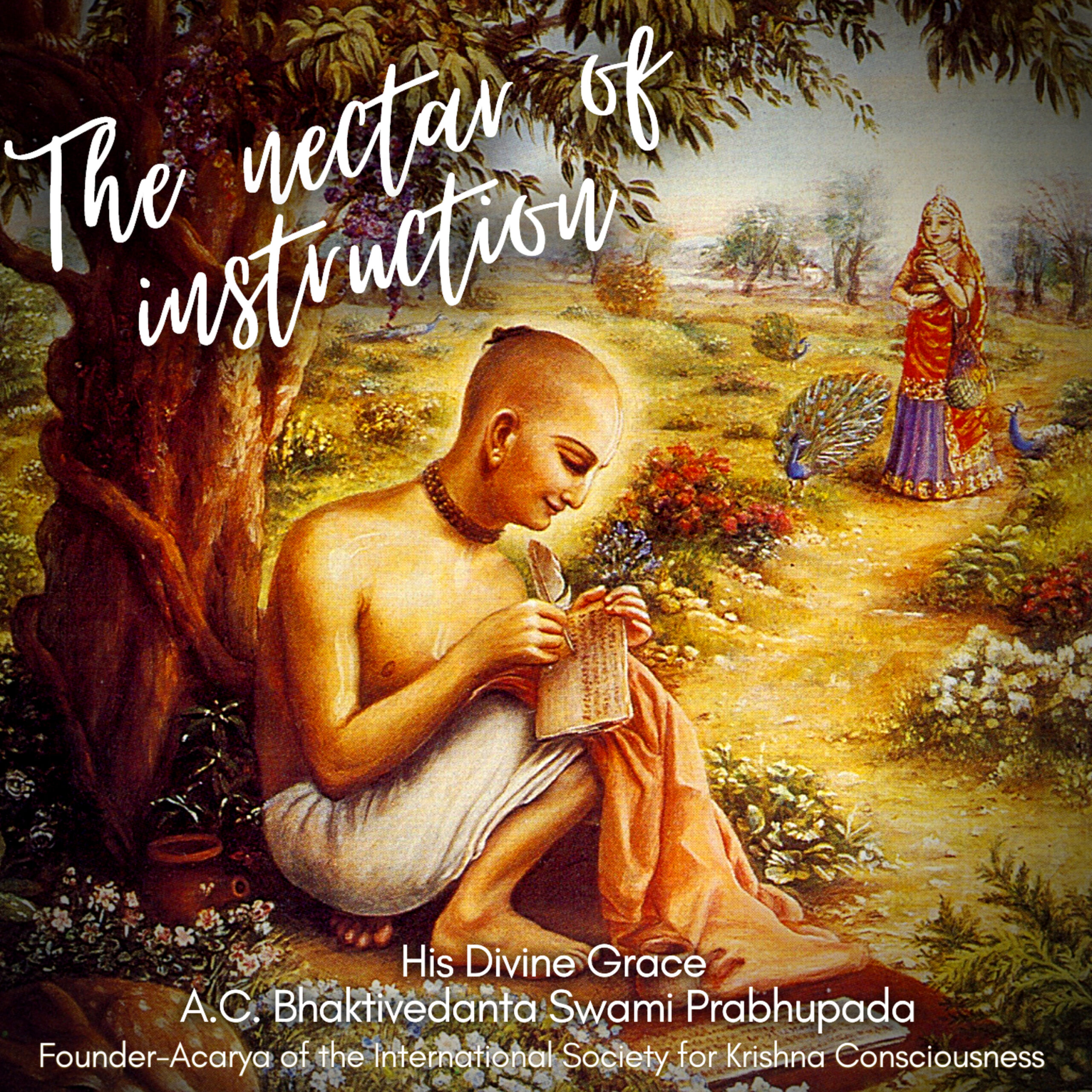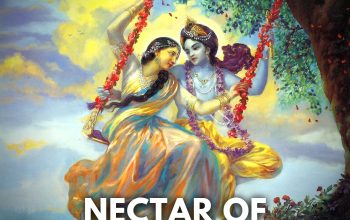This book is considered to be one of the central books of the entire Gaudiya literature. Srila Prabhupada establishes it in the preface itself “we are Rupanugas, followers of Srila Rupa Goswami”. Each verse is an axiomatic truth that defines necessary qualifications, mood, activities, vision, strategy and ultimate goal of the spiritual practice of an aspiring Vaisnava. It is so essential that it is included in the curriculum of the Bhakti-sastris. It’s a literal condensed manual of the vaisnava practice, journey from A to Z. I believe all serious aspiring Bhakti practitioners should know this book by heart. I surely aspire to do so.
Episodes playlist 166-181

Reading books by Srila A.C. Bhaktivedanta Swami Prabhupada daily. Each of these books is a literary masterpiece, they have all the answers to any questions of life and everything necessary to uplift and nourish our soul, develop our loving relationship with God, Krishna, and help us relish our adventurous spiritual journey. Such a deep, bonafide, theological science based on Vedic scriptures has never been presented like this before. Chant Hare Krishna, dive into these books, be happy and make others happy! From Mayapur with love, Your humble servant, Sulalita devi dasi
Experience is gathered by hearing and seeing. One who is less intelligent gathers experience by seeing, and one who is more intelligent gathers experience by hearing. When an intelligent person hears from the lawbooks and śāstras, or scriptures, that stealing is not good and hears that a thief is punished when arrested, he refrains from theft. A less intelligent person may first have to be arrested and punished for stealing to learn to stop stealing. However, a rascal, a foolish man, may have the experience of both hearing and seeing and may even be punished, but still he continues to steal. Even if such a person atones and is punished by the government, he will again commit theft as soon as he comes out of jail. If punishment in jail is considered atonement, what is the benefit of such atonement? | If you’d like to read along: https://biglink.to/nectarofinstruction

One of my favorite quotes
Nectar of Instruction | Text 3
It is not that one has to confine or narrow one’s activities. Kṛṣṇa is all-pervading. Therefore nothing is independent of Kṛṣṇa, as Kṛṣṇa Himself states in Bhagavad-gītā (BG 9.4):
mayā tatam idaṁ sarvaṁ
jagad avyakta-mūrtinā-
mat-sthāni sarva-bhūtāni
na cāhaṁ teṣv avasthitah
“By Me, in My unmanifested form, this entire universe is pervaded. All beings are in Me, but I am not in them.” Under the direction of the bona fide spiritual master, one has to make everything favorable for Kṛṣṇa’s service. For example, at present we are using a dictaphone. The materialist who invented this machine intended it for businessmen or writers of mundane subject matters. He certainly never thought of using the dictaphone in God’s service, but we are using this dictaphone to write Kṛṣṇa conscious literature. Of course, the manufacture of the dictaphone is wholly within the energy of Kṛṣṇa. All the parts of the instrument, including the electronic functions, are made from different combinations and interactions of the five basic types of material energy—namely, bhūmi, jala, agni, vāyu and ākāśa. The inventor used his brain to make this complicated machine, and his brain, as well as the ingredients, were supplied by Kṛṣṇa. According to the statement of Kṛṣṇa, mat-sthāni sarva-bhūtāni: (BG 9.4) “Everything is depending on My energy.” Thus the devotee can understand that since nothing is independent of Kṛṣṇa’s energy, everything should be dovetailed in His service.
Endeavor executed with intelligence in Kṛṣṇa consciousness is called utsāha, or enthusiasm. The devotees find the correct means by which everything can be utilized in the service of the Lord (nirbandhaḥ kṛṣṇa-sambandhe yuktaṁ vairāgyam ucyate). The execution of devotional service is not a matter of idle meditation but practical action in the foreground of spiritual life.



